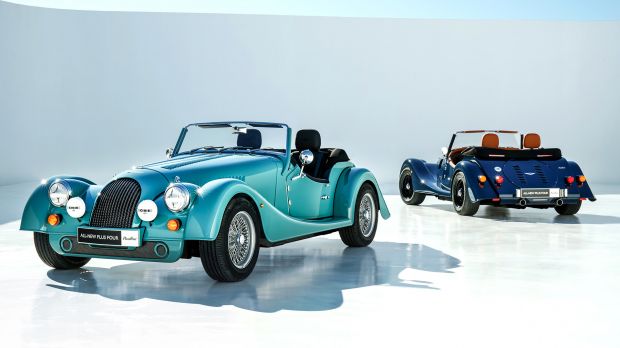Back

UK’s specialist vehicle sector most varied in the world
20th July 2021
SMMT's Low Volume and Specialist Vehicle Manufaturers Report outlines how Britain is a world leader in producing low volume, high value vehicles, everything from 250mph hypercars to campervans, limousines to electric taxis, motorhomes, wheelchair accessible vehicles, hearses and an unrivalled range of high performance, sports and luxury models.
In addition to some of the world’s most famous and desirable car brands, the UK also has undoubted strength in vehicle conversions and is home to Europe’s leading conversion company. All told, this vibrant sector turned over some £4 billion last year, employing more than 15,000 people in highly-skilled, well paid roles to produce over 28,000 cutting-edge products, even amid a global pandemic.1
As in previous years, most of these vehicles were built for global export, with companies enjoying a more balanced overseas footprint than larger OEMs. 87% of the UK’s low volume, premium and specialist vehicles made in 2020 were exported to overseas markets, including the EU, US, Asia and Middle East.2
To sustain innovation and keep attracting buyers from around the world the sector spent some £625 million on research and development (R&D) last year alone.3 This investment drove a number of innovative developments, such as the UK’s first electric vehicle to be made from recycled carbon fibre and the first British all-electric hypercar.
The UK’s low volume and specialist manufacturers have often led the way in introducing new ideas and applying high-performance technology to road vehicles. These include aerodynamic designs, light-weighting and safety concepts which are often honed on the racetrack before being rolled out to the mass market.
Together, the UK’s low volume and specialist manufacturers sustain a significant nationwide supply chain supporting many more thousands of jobs. A significant percentage of the parts and components that go into vehicles made by the sector are sourced locally, and the value added by some conversion companies can be more than £15,000 on a single vehicle.
Whilst these and all other vehicle manufacturers are committed to driving down CO2 emissions and improving air quality, the looming end of sale of new internal combustion engine cars and vans in the UK and EU poses a sizeable challenge for low volume and specialist brands, given their longer-than- average production life cycles, tight profit margins and occasional difficulties in accessing new technologies from third parties rather than developing them in-house.
The significant cost of this transition, combined with the race to include ever more connectivity in modern vehicles, means that many of the brands in this sector face acute development challenges without the economies of scale – and deeper pockets – that mass market manufacturers would enjoy.
These small producers usually make less than 10,000 vehicles a year each for global markets, yet face the same regulatory frameworks and timescales as the volume players. This is why they need suitable support if they are to prosper on the Road to Zero.
